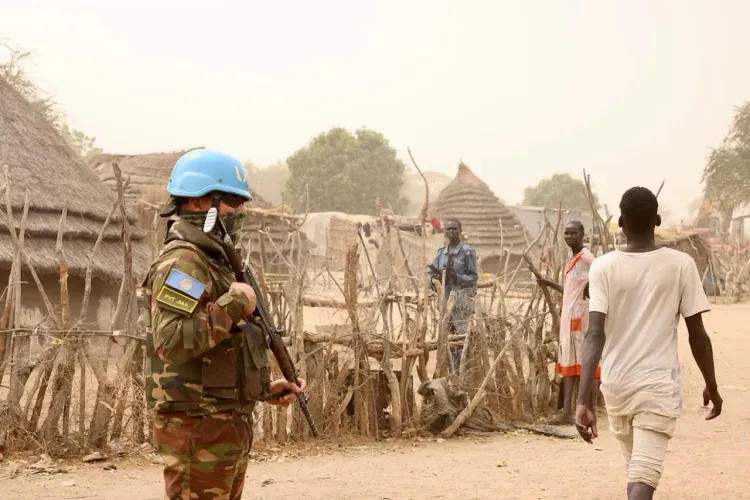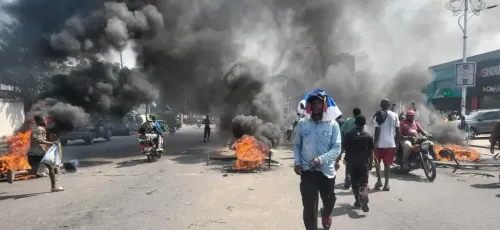Have Sudan and South Sudan Reached an Agreement to Protect Oil Facilities?

Synopsis
Key Takeaways
- Sudan and South Sudan have agreed to protect oil facilities.
- A joint economic committee will be established.
- A free trade zone at Port Sudan is proposed.
- Both nations will enhance cooperation on counterterrorism and border security.
- The agreements come amid ongoing conflicts and humanitarian crises.
Khartoum, Oct 6 (NationPress) In a significant development, Sudan and South Sudan have forged an agreement to safeguard vital oil facilities and the central stations of the pipelines that carry South Sudan's oil to Port Sudan in eastern Sudan, as disclosed in a joint statement released on Monday.
The two nations committed to enhancing technical expertise, increasing oil production, and ensuring the safety of oil fields and crucial pumping stations, as outlined in the statement.
Additionally, they have decided to further collaborate on counterterrorism, intelligence sharing, and border security, according to reports from Xinhua news agency.
In a bid to strengthen economic relations, both countries announced the establishment of a joint economic committee aimed at fostering cooperation across multiple sectors, including trade, investment, energy, oil, agriculture, transportation, infrastructure, and public-private partnerships.
They put forth a proposal for the creation of a free trade zone at Port Sudan, designed to facilitate cross-border trade and investment, bolster the oil sector and its supply chains, and simplify the transit of goods to South Sudan.
These agreements were accomplished during an official visit to Sudan by South Sudan's Minister of Foreign Affairs and International Cooperation, Monday Semaya Kumba, who was in Sudan from Saturday to Monday.
While in Port Sudan, Kumba engaged in discussions with Abdel Fattah Al-Burhan, the chairman of Sudan's Transitional Sovereign Council, along with other high-ranking officials.
Oil exports serve as the primary revenue source for South Sudan, which relies on Sudan for transporting crude oil to international markets, with Sudan receiving transit fees in exchange.
Currently, Sudan is embroiled in a civil conflict between the Sudanese Armed Forces and the paramilitary Rapid Support Forces, which erupted in April 2023, resulting in tens of thousands of deaths, millions displaced, and exacerbating one of the world's most severe humanitarian crises.
In a related note, widespread flooding due to heavy rains in South Sudan has led to the deaths of 19 individuals and has impacted approximately 639,225 others across 26 counties in six states, as reported by a United Nations humanitarian agency on Friday.









